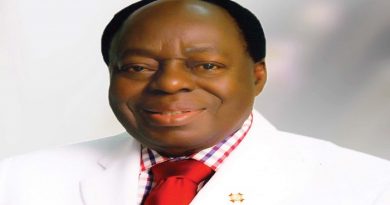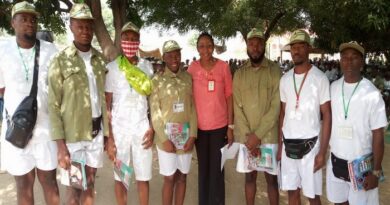Forex for Importation: CBN adds fertiliser to list of 41 banned items
The Central Bank of Nigeria (CBN) on Monday, added fertiliser to the list of items classified as “Not Valid for Foreign Exchange.”
The CBN Director, Trade & Exchange Department, Mr. Ahmed Umar, said in an official circular to all authorised dealers and the general public that effective Friday, December 7, fertiliser was included as one of the imported goods and services not valid for foreign exchange.
Umar said the latest decision was part of a continued effort by government to sustain the achievement recorded since the introduction of the policy.
One of the success stories easily cited as a direct consequence of the policy has been the significant reduction in the volumes of imported rice against the growing volumes of locally produced rice consumed in the country in the last three years.
In June 2015, the CBN had listed 41 items it said were ineligible for allocation of foreign exchange (forex) for their importation, on grounds that they could easily be produced in Nigeria.
Some of the affected items include rice, cement, margarine, palm kernel, palm oil products, vegetable oils, meat and processed meat products, vegetables and process vegetable products, poultry, tomatoes/tomato paste, soap and cosmetics and clothes.
Other items included private air planes/jets, Indian incense, tinned fish in sauce, cold rolled steel sheets, galvanised steel sheets, roofing sheets, wheelbarrows, head pans, metal boxes/containers, enamel ware, steel drums and pipes, wire mesh, steel nails, wood particle boards and panels.
Equally affected were security and razor wire, wood particle and fibre boards and panels, wooden doors, furniture, toothpicks, glass/glassware, kitchen utensils, tableware, tiles (vitrified, ceramics), textiles, wooden fabrics, plastic/rubber products, polypropylene granules and cellophane wrappers.
The Initiative was approved by President Muhammadu Buhari in December 2016 to promote the local production of over one million metric tonnes of blended Nitrogen, Phosphorous and Potassium (NPK) fertiliser in the country to conserve the huge foreign exchange used in its importation.
It was gathered that one of the reasons for including fertiliser in the 41 items list by the CBN was to promote the activities of the Presidential Fertiliser Initiative (PFI) established in 2016.
Executed by the Nigerian Sovereign Investment Authority (NSIA), the PFI was mandated to ensure the rehabilitation of moribund fertiliser plants across the country and return them to the path of productivity.
Products from the plants were expected to replace imported stocks of blended fertiliser shipped into the country as fully-finished products, despite the existence locally of urea and limestone, which constitute roughly two-thirds of the component of each fertiliser bag.
Since the commencement of operations, the Minister of Information and Culture, Alhaji Lai Mohammed, said at least 12 moribund fertiliser blending plants, with a combined capacity of over two million metric tonnes (MT), have been successfully rehabilitated, bringing to 23 the total number of plants partaking in the scheme.
The Managing Director of NSIA, Uche Orji, said in 2017 alone, the PFI delivered over 10 million 50kg bags (500,000MT) of NPK 20:10:10 fertiliser at about N5, 500 in time for the wet season.“That’s down from the price of N9, 000 per 50kg bag in 2016 – a 40 per cent reduction in price.
“The 12 fertiliser plants also delivered the commodity at 30 per cent below market prices halted government subsidies, and created 50,000 jobs, thereby saving the government N50 billion ($139 million) in would-be subsidies this year”. Orji said.




